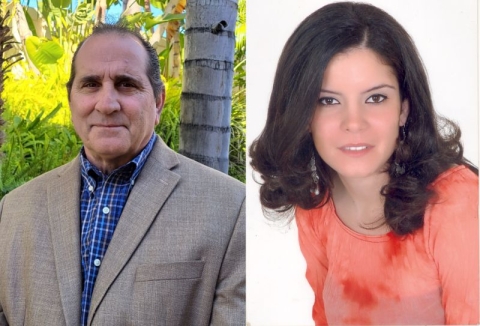

15 March 2023
4 min read
Top tips on how professionals should conduct investigative interviews have been summarised in a new series of reports, based on decades of research.
The reports cover a number of topics, from first impressions and building rapport to memory recall and eyewitness identification.
They are for any professionals who train police, military, security and immigration personnel, as well as legislators, courts and the general public.
Dr Haneen Deeb, from the University of Portsmouth’s Department of Psychology, co-authored the 14 reports with retired police detective Mark Severino.
Dr Deeb said: “We want these reports to bridge the gap between academics and practitioners, so they include scientific recommendations using language that’s accessible for a lay audience.
“We’ve written them for anyone who is interested in best practice on how to conduct interviews. They’re even relevant for HR professionals who want to hone their interviewing skills.”
The reports cover how to conduct interviews from the moment an interviewer meets a suspect or eyewitness right through to the end of the interview.
Our reports discuss scientific practices and debunk myths that are widely spread in society such as the effectiveness of coercion and torture in eliciting information, which have led to investigations taking a wrong turn.
Dr Haneen Deeb, Senior Research Associate
Dr Deeb added: “There are really high profile cases where a miscarriage of justice has occurred because investigative interviewers have used brutal methods to elicit a confession. Take for example the Birmingham Six and the Guildford Four, some of the worst miscarriages of justice in recent history.
“The gross police misconduct in the case of the Birmingham Six spilled out into the judiciary system, which meant that strong misconceptions about the men led to wrongful convictions and 16 years in prison. It’s important to understand why they were falsely convicted and it’s critical that this is never repeated. In response to misguided interview practice in these and similar cases, information-gathering and non-confrontational interview approaches have been developed and used for training practitioners since then.
“Our reports discuss scientific practices and debunk myths that are widely spread in society such as the effectiveness of coercion and torture in eliciting information, which have led to investigations like this taking a wrong turn. Thanks to these falsehoods, thousands of innocent suspects have been imprisoned and thousands of guilty suspects have been freed, posing a danger to society. While several western countries have adopted an information-gathering approach to interviewing, false beliefs and inappropriate practices are still prevalent worldwide.”
Dr Deeb said the reports are also useful for interviewers needing to garner information about potential terrorist attacks and espionage and during military operations.
Published on the Alethaie Project website, the reports include decades of robust research from experts in the field.
